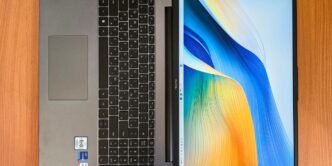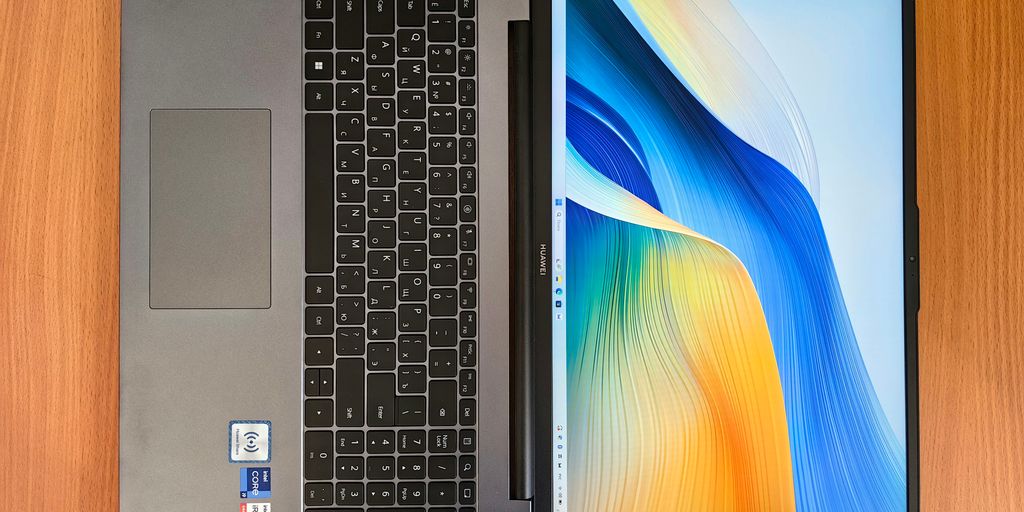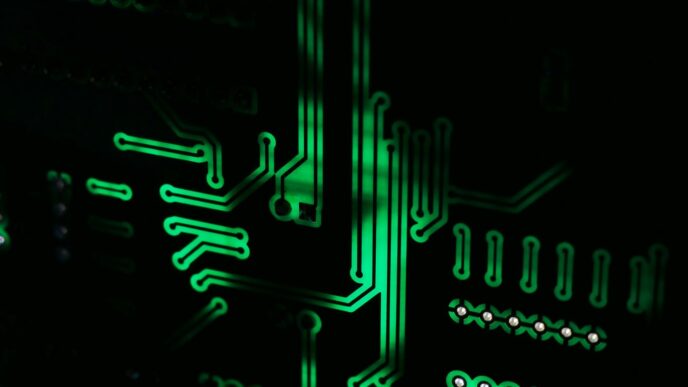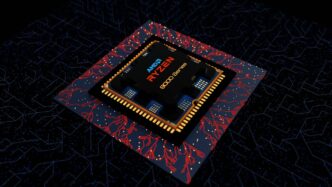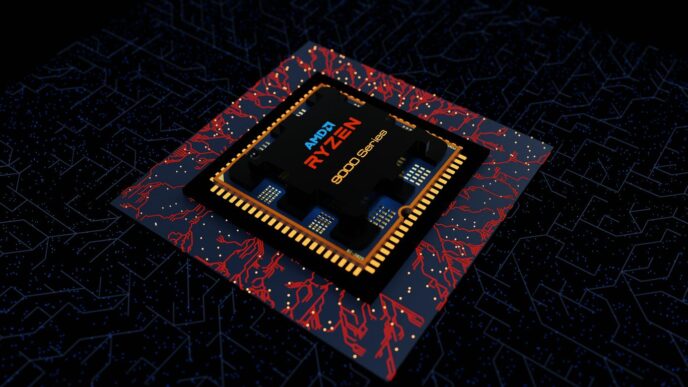Picking out a new computer can be a real headache, right? There are so many choices out there. Two names that always pop up are Dell and HP. They both make a ton of different machines, from basic laptops to super powerful gaming rigs. It’s tough to figure out which one is better for you. This article will break down Dell vs HP, looking at everything from how fast they are to how much they cost, so you can make a smart choice for your next PC.
Key Takeaways
- Dell and HP both offer a wide range of computers, so you can find something for almost any need or budget.
- Performance often comes down to specific models, but both brands have strong options for gaming, work, and everyday use.
- HP sometimes has more budget-friendly options, while Dell can lean towards premium features and higher prices.
- Both companies provide various customer support channels, including online resources and direct help.
- Considering what you’ll use the computer for most is key to deciding whether Dell or HP is the better fit for you.
Performance Comparison: Dell Versus HP
Processor Power and Graphics Capabilities
When it comes to performance, both Dell and HP offer a wide range of options, making a direct comparison tricky. Both use Intel processors, but HP also incorporates AMD processors in some models. The key is to look at the specific processor model (like an Intel Core i7 or AMD Ryzen 7) and its generation to gauge its power. Graphics-wise, you’ll find integrated graphics solutions (like Intel UHD Graphics) for basic tasks and dedicated graphics cards (like NVIDIA GeForce or AMD Radeon) for more demanding applications.
Gaming Performance and Dedicated Graphics
For gaming, dedicated graphics cards are a must. Both Dell’s Alienware and HP’s Omen series are built for gaming, packing powerful GPUs. The specific card (e.g., NVIDIA GeForce RTX 4070) will determine the level of gaming performance. It’s not just about the GPU, though; the processor, RAM, and storage all play a role. HP’s Omen series is often praised for its gaming-oriented desktops, while Dell’s Alienware delivers high-end performance. Make sure to check out dedicated graphics cards for the best gaming experience.
Everyday Tasks and Professional Workloads
For everyday tasks like browsing, email, and document editing, even integrated graphics are usually sufficient. However, for professional workloads like video editing, 3D modeling, or software development, you’ll want a more powerful processor and ample RAM. Dell’s XPS line and HP’s Envy and Spectre lines are often good choices for these tasks. The amount of RAM (16GB is a good starting point) and the type of storage (SSD is much faster than HDD) will also impact performance. It really depends on the specific software you’re using and its requirements. For professional use, consider Dell’s stock for its growth in enterprise technology.
Design and Build Quality: Dell Versus HP
Aesthetic Appeal and Material Choices
When it comes to looks, both Dell and HP have stepped up their game. HP often goes for a sleek, modern design, especially in their all-in-one models. Think slim profiles and an emphasis on making a statement. They sometimes use materials like aluminum or even leather on high-end models. Dell, on the other hand, often prioritizes a more functional and robust design. Durability is key for Dell, so you’ll often find stronger materials like carbon fiber or aluminum in their builds. It really comes down to whether you prefer a stylish look or something that feels like it can take a beating.
Durability and Longevity
Durability is a big deal, right? You want your laptop to last. Both HP and Dell use decent materials, but they approach it differently. Dell is known for making laptops that can withstand some wear and tear. They often use strong plastics and metal alloys in their construction. HP also makes durable laptops, but they sometimes focus more on keeping things light and thin. This means they might use lighter materials that, while still strong, might not feel as rugged as a Dell. Ultimately, both brands offer products that should last several years with proper care, but Dell might have a slight edge if you’re particularly rough on your tech. It’s worth checking out Dell’s product lines for more information.
Portability and Form Factors
Both HP and Dell offer a wide range of laptops, from lightweight ultrabooks to beefy gaming rigs. HP tends to focus on making their laptops as thin and light as possible, especially in their Spectre and Envy lines. This makes them great for students or anyone who needs to carry their laptop around all day. Dell also has some very portable options, but they also offer a wider range of larger, more powerful laptops. They also have a good selection of affordable laptops and desktops. So, if you need a desktop replacement or a powerful workstation, Dell might be a better choice. Here’s a quick comparison:
- HP: Ultrabooks, 2-in-1s, lightweight laptops
- Dell: Traditional laptops, gaming laptops, workstations
- Both: Desktops, all-in-one computers
Value and Pricing: Dell Versus HP
Budget-Friendly Options
When you’re pinching pennies, both Dell and HP have some decent options. HP often comes out ahead in the super-budget category. You can usually find a basic HP desktop or laptop for a bit less than a comparable Dell. This makes HP a solid choice if price is your primary concern. Dell’s budget models are still good, but they might require you to make a few compromises on features or performance to stay within the same price range. It really depends on the specific sales and configurations available at the time you’re shopping. For example, you might find a HP LaserJet 3030 Drivers for a steal.
Premium Features and Higher Costs
If you’re looking for top-of-the-line performance and features, Dell often has the edge. Their XPS and Alienware lines, for example, pack in powerful components and innovative designs, but you’ll pay a premium for it. HP also has premium offerings, like their Spectre and Omen series, but they sometimes don’t quite match Dell in terms of raw power or cutting-edge features. Think about it this way: Dell is like buying a sports car with all the bells and whistles, while HP is like getting a luxury sedan – still great, but maybe not quite as flashy or powerful. The higher prices may be worth it for those looking for a more powerful machine.
Overall Return on Investment
Deciding which brand offers a better return on investment (ROI) really depends on your needs and how long you plan to use the computer. If you need a machine for basic tasks and don’t plan to push it too hard, an HP might be the better bet. You’ll save money upfront, and it’ll likely last you a good few years. However, if you need a powerful machine for demanding tasks like gaming or video editing, a Dell might be a better long-term investment. It might cost more initially, but it’ll likely perform better and last longer under heavy use. Consider these points:
- Longevity: How long do you expect to use the computer?
- Performance Needs: What tasks will you be performing regularly?
- Resale Value: Do you plan to sell the computer later?
Customer Support and Services: Dell Versus HP

When you’re dropping serious cash on a new PC, knowing you’ve got solid customer support backing you up is super important. Let’s break down what Dell and HP bring to the table when things go sideways.
Availability of Support Channels
Both Dell and HP provide a bunch of ways to get help, which is good. You can usually reach them by phone, email, or even live chat. HP seems to be pushing their social media support a bit more, so if you’re the type who likes to tweet your problems, that might be a plus. Dell’s phone support is available 24/7, which is great for those late-night tech emergencies. Having multiple channels ensures you can get help in a way that suits your style and urgency.
Self-Help Resources and Online Communities
If you’re the DIY type, both companies have pretty extensive online resources. Think knowledge bases, FAQs, and video tutorials. Dell’s online forums can be a good place to find answers from other users, and HP has a similar setup. These resources are super handy for troubleshooting common issues without having to wait on hold with customer service. You can find tech tips on both websites.
Warranty and After-Sales Service
Warranty coverage is where things can get interesting. Both Dell and HP offer standard warranties, but the details (length of coverage, what’s covered, etc.) can vary a lot depending on the specific product and any extended warranty you buy. It’s worth digging into the fine print to see what you’re actually getting. Also, check out the after-sales service options – things like on-site repairs or advanced support packages – if you want extra peace of mind. Dell often has more affordable laptop and desktop options.
Specific Model Comparisons: Dell Versus HP
Dell Inspiron Versus HP Pavilion
When you’re looking at everyday laptops, the Dell Inspiron and HP Pavilion are often top contenders. Both aim for that sweet spot of affordability and functionality, but they have different strengths. The Inspiron is often praised for its reliability and solid performance for basic tasks. The Pavilion, on the other hand, sometimes edges ahead with a more stylish design and a few extra features at a similar price point. It really comes down to what you value more – dependable performance or a bit more flair.
Gaming Series: Alienware Versus Omen
For gamers, Dell’s Alienware and HP’s Omen are the big names. Alienware is known for its high-end components and distinctive design, often pushing the boundaries of performance. Omen offers a more balanced approach, providing strong gaming capabilities at a slightly more accessible price. Here’s a quick rundown:
- Alienware: Cutting-edge tech, premium build, higher price.
- Omen: Good performance, more affordable, sleek design.
- Consider: What games you play and your budget.
Business Lines: Latitude Versus EliteBook
In the business world, Dell’s Latitude and HP’s EliteBook are serious contenders. These laptops are built for productivity, security, and durability. The EliteBook often stands out with its sleek design and focus on security features, while the Latitude is known for its robust build and manageability. If you’re looking for thin laptops that can handle the rigors of business travel, both are excellent choices.
Here’s a quick comparison:
| Feature | Dell Latitude | HP EliteBook |
|---|---|---|
| Build Quality | Durable, practical | Sleek, premium |
| Security | Strong security options | Enhanced security features |
| Manageability | Easy to manage in corporate environments | Designed for corporate environments |
| Target Audience | Businesses needing reliable, manageable laptops | Professionals valuing style and security |
Target Audience Suitability: Dell Versus HP
Best for Students
When it comes to students, both Dell and HP have something to offer, but their strengths lie in different areas. HP often appeals to students looking for energy-efficient models that won’t break the bank. Dell, on the other hand, tends to focus on durability and performance, which can be super important for students tackling demanding tasks like video editing or running complex software. Ultimately, it depends on the student’s specific needs and budget.
Consider these points:
- HP: Great for everyday tasks, note-taking, and general use. Often more affordable.
- Dell: Better for demanding coursework, projects requiring robust performance, and students who need a laptop that can withstand daily wear and tear.
- Both brands offer student discounts, so be sure to check those out!
Ideal for Business Users
For business users, the choice between Dell and HP often boils down to specific needs around security, manageability, and support. Dell’s Latitude series is well-regarded for its enterprise-level security features and robust build quality. HP’s EliteBooks offer similar durability and come with comprehensive IT management tools. It really depends on what your business prioritizes. Do you need top-notch security, or are you more focused on ease of management across your IT infrastructure?
Here’s a quick comparison:
| Feature | Dell (Latitude) | HP (EliteBook) |
|---|---|---|
| Security | Strong, enterprise-level features | Comprehensive security suite |
| Manageability | Excellent remote management capabilities | Robust IT management tools |
| Build Quality | Durable, designed for demanding work environments | Similarly durable, premium design |
| Customer Support | Generally reliable and responsive | Excellent support options available |
Choices for Casual Users and Gamers
For casual users, both HP and Dell offer a wide range of options. HP tends to have a slight edge in terms of design and features like fast charging, which can be appealing for everyday use. Dell, however, often packs faster processors and dedicated graphics cards in some models, making them a decent choice for light gaming or multimedia tasks. Gamers will want to look at the gaming series from both brands, like Dell’s Alienware and HP’s Omen, which offer competitive gaming specs. Storage and graphics capabilities are key comparisons for gamers to consider. It’s all about finding the right balance of price, performance, and features for your specific needs.
Wrapping It Up: Dell or HP?
So, after looking at all this, picking between Dell and HP really comes down to what you need. Both companies make good computers, but they do things a little differently. If you’re on a tight budget or want something super sleek, HP might be your go-to. But if you’re okay spending a bit more for something really solid, maybe with better customer help, Dell could be a good fit. Think about what you’ll use it for, how much you want to spend, and what features matter most to you. There’s no single "best" choice, just the best choice for you.
Frequently Asked Questions
Which computer brand is better for students, HP or Dell?
For students, both HP and Dell provide great computer choices. HP often has more affordable options and models that save energy, which can be good for school. Dell’s computers are known for being tough and powerful, which is helpful for harder schoolwork.
Which computer brand is better for businesses, HP or Dell?
For businesses, Dell’s Latitude series is very secure and strong. HP’s EliteBooks are also well-built and have good tools for managing computers in a company. The best choice depends on whether a business needs more security or easier computer management.
Which computer performs better: Dell Inspiron or HP Pavilion?
When comparing Dell Inspiron and HP Pavilion computers, it really depends on the specific parts inside each one. Generally, Dell Inspiron computers offer solid performance for many different uses. HP Pavilion computers also give good performance and often have cool features like touchscreens or special graphics cards.
Which is better for gaming: Dell Alienware or HP Omen?
When it comes to gaming, Dell’s Alienware computers are famous for being super powerful with top-notch graphics and fast processors. HP’s Omen series is also built for gaming and has strong parts. Both are great for playing games, but Alienware often has a slight edge in raw power.
Which brand, Dell or HP, has better customer support?
Dell is often seen as having better customer support, with many ways to get help like phone, chat, and online guides. HP also offers good support, but Dell is usually praised more for its helpfulness and ease of access.
Are Dell computers more expensive than HP computers?
Generally, HP computers are a bit more budget-friendly, especially for everyday use and students. Dell computers can be more expensive, but they often come with better features, stronger build quality, and longer warranties, which can make the higher price worth it for some people.

